Do you really need to cover an AC unit in winter? HVAC experts warn it will do more harm than good
You might think it’s helping, but it could be a waste of time
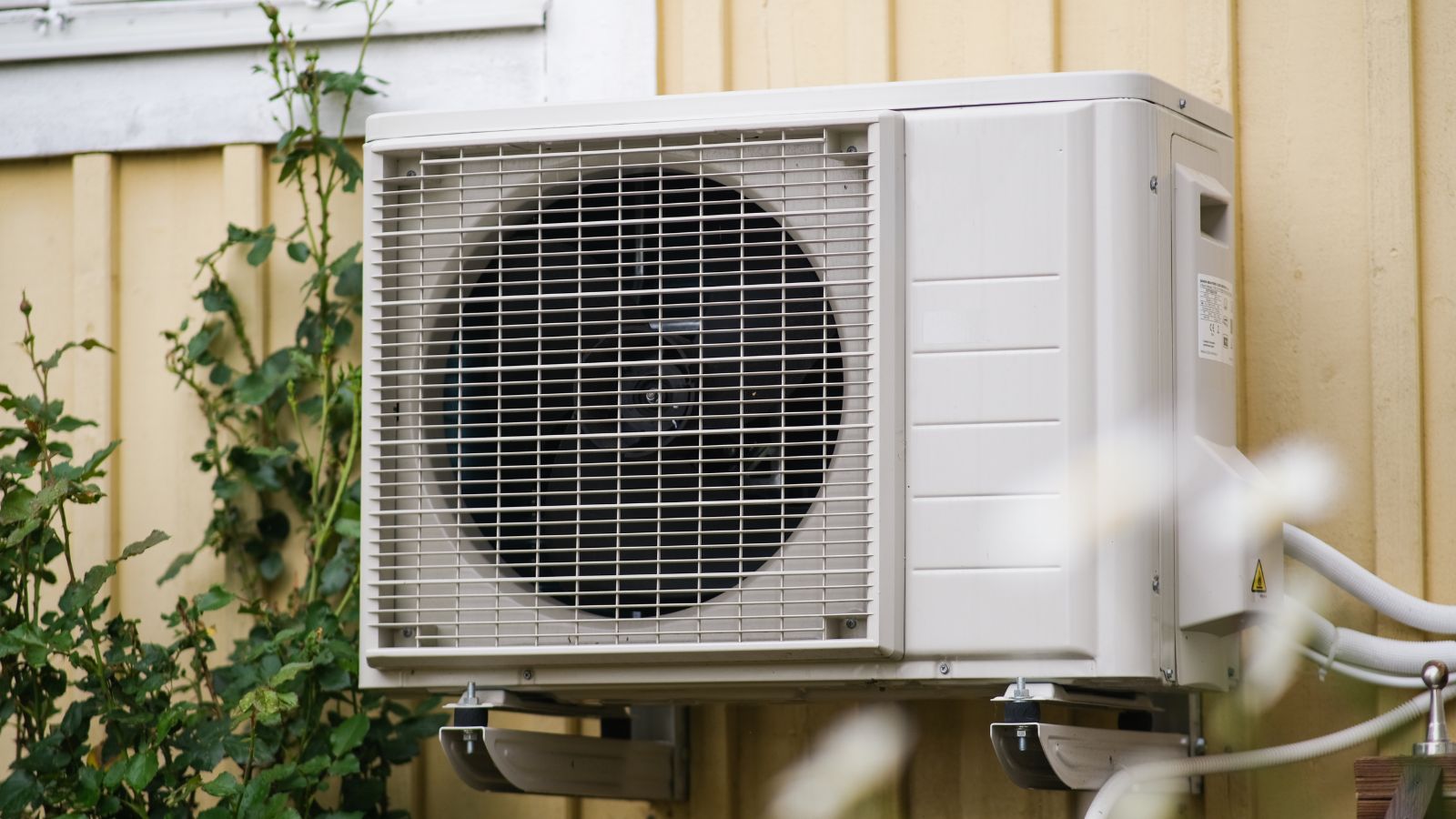

Very few of us are probably using our AC units after summer, switching over to heating instead to keep us cozy through winter. The logic follows that any large piece of technological equipment probably shouldn’t be outside in freezing cold, wet weather without protection.
However, HVAC experts are warning that using a tight-fitting cover over the top could be doing more harm than good.
This is why our experts believe it's a waste of time to wrestle with an AC cover when preparing a house for cold weather, and what you can do instead to protect your unit from damage during a freeze.
Why you shouldn’t cover an AC unit in winter
It is very rare that cold weather causes an AC unit to freeze up. Kevin Goude, HVAC specialist and owner of First Choice begins, ‘Tight-fitting fabric and vinyl AC covers are absolutely useless for your air conditioning and do more harm than good. Remember, AC units are designed to withstand all weather conditions, including snow, rain, wind, and extreme temperatures, and AC covers only trap moisture inside, leading to mold growth and rust.’
This not only shortens the lifespan of your unit, but also makes cleaning an AC unit harder, and can affect your indoor air quality.
Kevin continues, ‘The only things you may want to protect your AC unit from is ice falling from the roof or flying objects during storms. But never use those tight fabric covers that fully enclose the unit – they are too soft to protect the unit from hard objects and sit too tight to the unit walls to ensure proper airflow.’
To prepare your home for a snowstorm, Kevin instead recommends, ‘If your AC unit is wall-mounted, install a plywood board on top secured with brackets or screws to deflect falling ice and debris. If you have a standing AC unit, you can protect it from fallen ice and flying objects with a wooden or metal slatted box-style cover that prevents damage while allowing airflow.’
If you are concerned about potential damage over winter, you can always schedule an HVAC system service at the start of each spring to ensure your system is ready to go as the temperature rises.
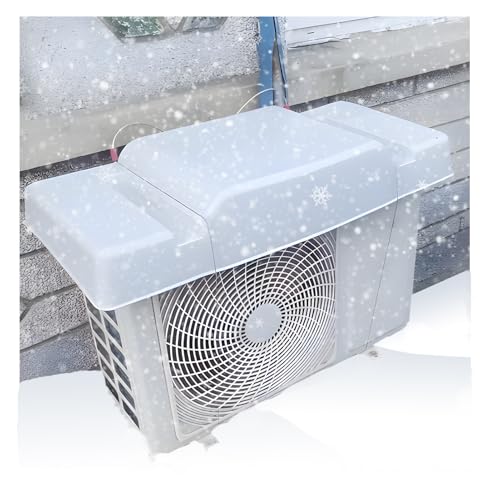
Covering just the top of your AC unit maintains good air flow to the rest of the unit while protecting it from sudden impacts.
The exceptions to the rule

There are two exceptions to the ‘no-covering’ rule, but they are only temporary, reveals Mark Woodruff, senior product manager at HVAC company, Trane.
He says, ‘Generally speaking, the best time to cover your unit is in the fall, with the goal being to keep falling leaves and debris out of the unit. There are challenges to this for some of the warmer areas of the country which may still periodically need cooling during the fall. That is because many homeowners may turn on the AC and forget the cover is on the unit, which can hurt the air conditioning system.’ To get around this, you can be more vigilant about collecting leaves and removing them from around your AC unit regularly as part of fall home maintenance.
‘There is also a scenario where the AC unit is near a driveway where the homeowner may be spreading salt during the snowy season. Salt is corrosive and will cause rust, so keeping salt off of the unit is generally a good thing.
‘Overall, however, it’s still best if you can cover just the top but not the whole unit, and avoid using salt near the unit altogether when de-icing garden paths and patios.’
Shutting down an AC unit for winter
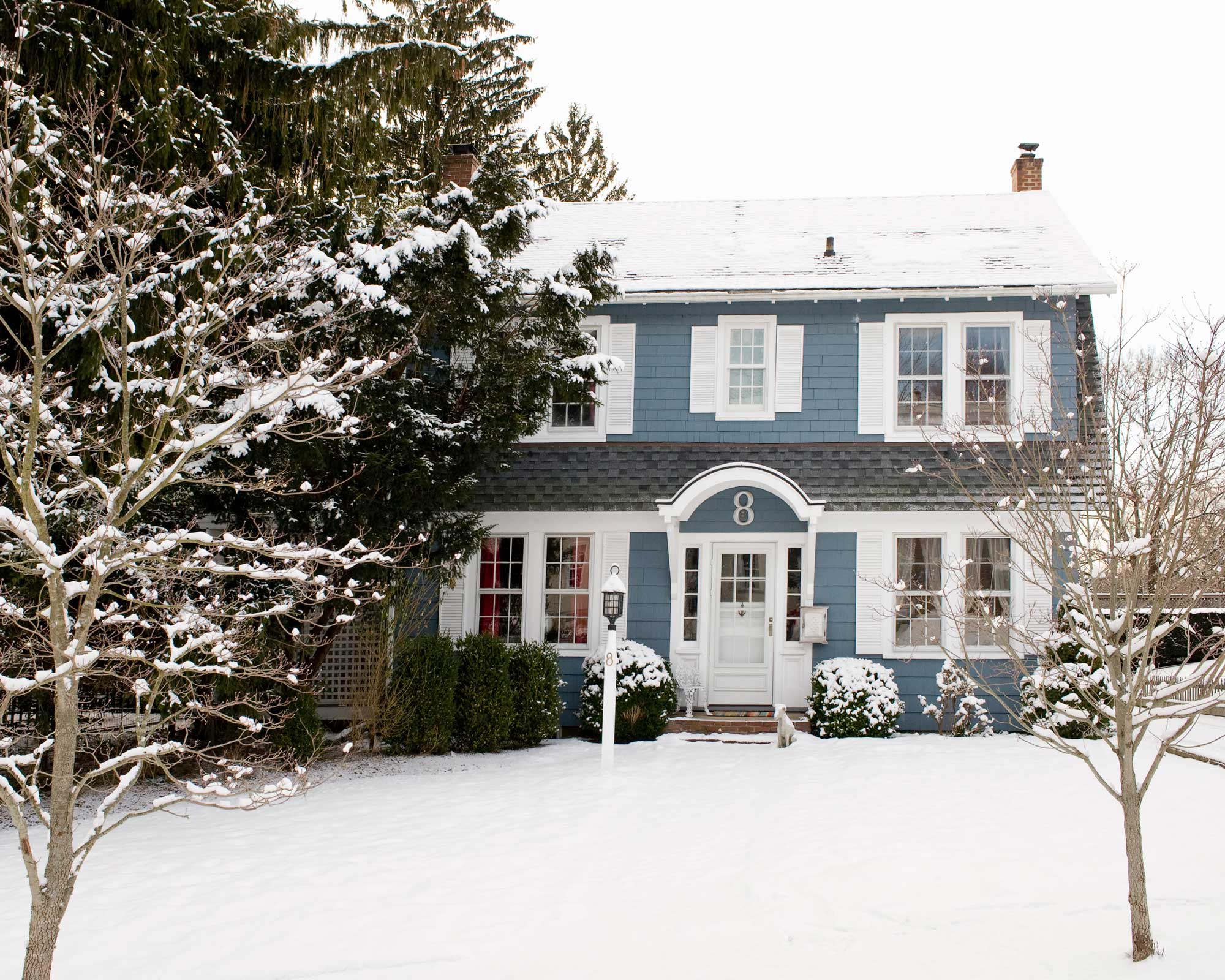
If you do not need to cover an AC unit when the temperature drops, what should you do instead?
Richie Drew, VP of operations at One Hour Heating & Air Conditioning says, ‘The first thing to do when shutting down your central AC for the winter is to turn off its power. This prevents energy loss from phantom loads and helps avoid accidentally starting the system during cold months. If the unit were to turn on and circulate water while temperatures are freezing, it could lead to serious damage.
‘The main concern when it comes to snow is the amount of snow piling up around the unit, not the total snowfall in the region. Protecting the unit is more about preventing excessive accumulation around it rather than shielding it from cold temperatures.’
A snow shovel with a brush, available at Walmart, is the best option for removing snow buildup around an external unit.
FAQs
Should I put a mesh cover on my AC unit?
Generally speaking, you should never cover an AC unit with anything. Mesh covers might help stop leaves and other debris from entering the system, but they can also restrict air flow, risking worse damage to the unit. At most, use a roof over your AC unit to protect it from falling snow, ice, and debris from above in winter.
How do I winterize an outdoor AC unit?
Besides turning the power off, you can generally leave an AC unit over winter as they are designed to withstand adverse weather. If you regularly experience below-freezing temperatures, you can consider insulating pipework with foam insulation to stop pipes from freezing.
If you do decide to cover your AC unit in winter, make sure that the cover is loose fitting to allow for adequate ventilation to avoid condensation that could damage the unit. All in all, though, it is better to save your money and energy when winterizing a house and leave your unit be.
It's also wise to know about the home maintenance mistakes to never make in winter.
Sign up to the Homes & Gardens newsletter
Design expertise in your inbox – from inspiring decorating ideas and beautiful celebrity homes to practical gardening advice and shopping round-ups.

Chiana has been at Homes & Gardens for two years and is our resident 'queen' of non-toxic living. She spends most of her time producing content for the Solved section of the website, helping readers get the most out of their homes through clever decluttering, cleaning, and tidying tips. She was named one of Fixr's top home improvement journalists in 2024.
You must confirm your public display name before commenting
Please logout and then login again, you will then be prompted to enter your display name.
-
 These are the 6 things designers say you should never put in a small living room
These are the 6 things designers say you should never put in a small living roomThe items that should be banned from a small living room are right here along with what you should opt for instead
By Sarah Warwick
-
 I always get my small space storage from Wayfair – and these discounted $35 stackable Martha Stewart storage boxes are the perfect fix for my tiny vanity
I always get my small space storage from Wayfair – and these discounted $35 stackable Martha Stewart storage boxes are the perfect fix for my tiny vanityI'm going vertical for tiny space storage success with this Early Way Day 2025 bargain
By Punteha van Terheyden
-
 5 surprisingly practical ways to re-purpose old bed sheets for cleaning, decluttering and storage at home
5 surprisingly practical ways to re-purpose old bed sheets for cleaning, decluttering and storage at homeDon't ditch worn-out bedding – there's life in them yet
By Natasha Brinsmead
-
 Do you need to turn the lights off when you leave a room? Experts have ended this time-honored debate once and for all
Do you need to turn the lights off when you leave a room? Experts have ended this time-honored debate once and for allOn or off? We delve into the details of this age-old dispute
By Chiana Dickson
-
 I tried the baking soda trick to quickly and naturally clean my outdoor rug – it’s now set for Easter outdoor hosting
I tried the baking soda trick to quickly and naturally clean my outdoor rug – it’s now set for Easter outdoor hostingBaking soda is perfect for lifting dirt and debris
By Eve Smallman
-
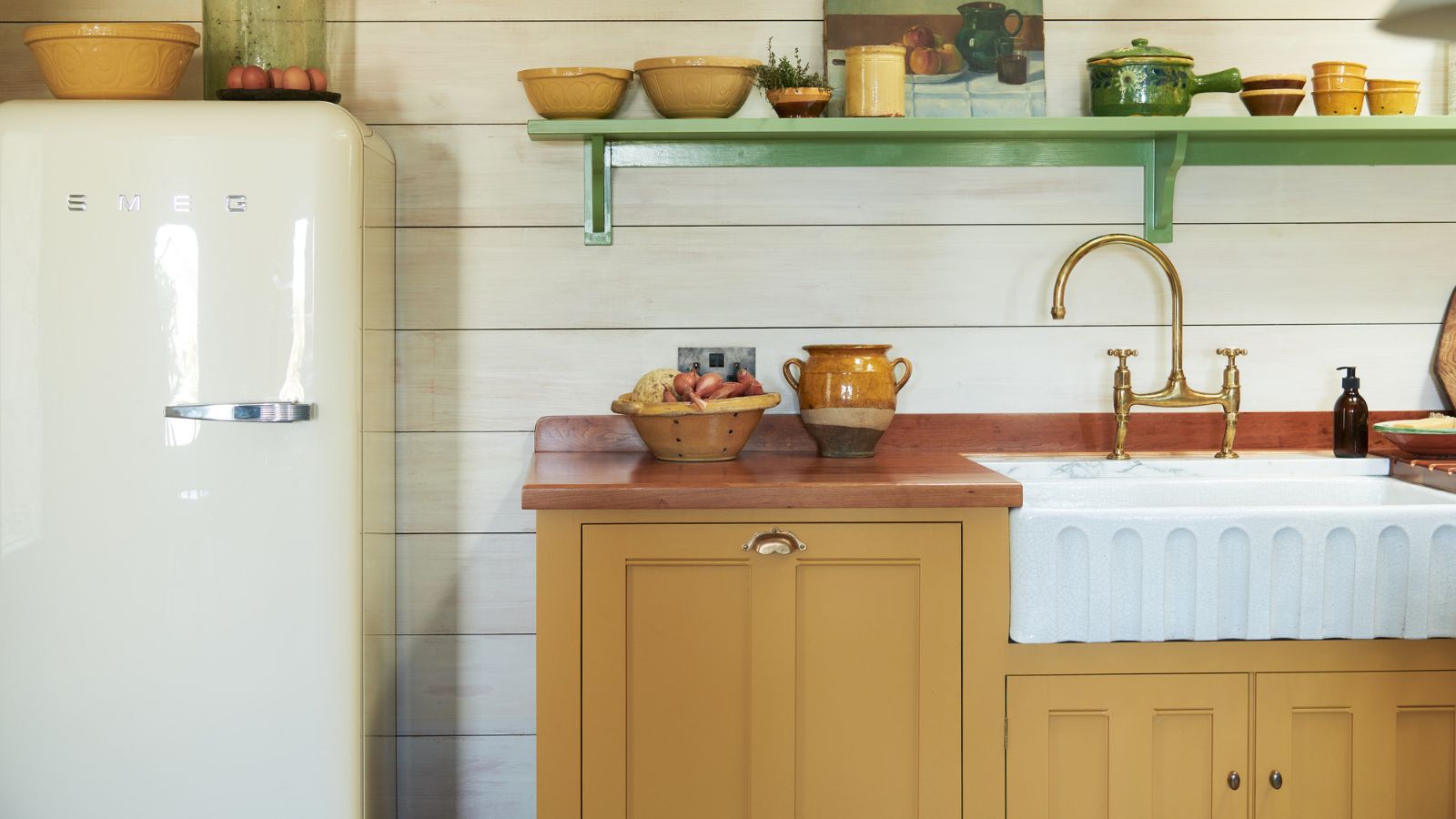 The 5 worst things you can do to your fridge – these will drive up energy costs and result in pricey and regrettable repairs
The 5 worst things you can do to your fridge – these will drive up energy costs and result in pricey and regrettable repairsIt's crucial to swerve these blunders, appliance experts warn
By Ottilie Blackhall
-
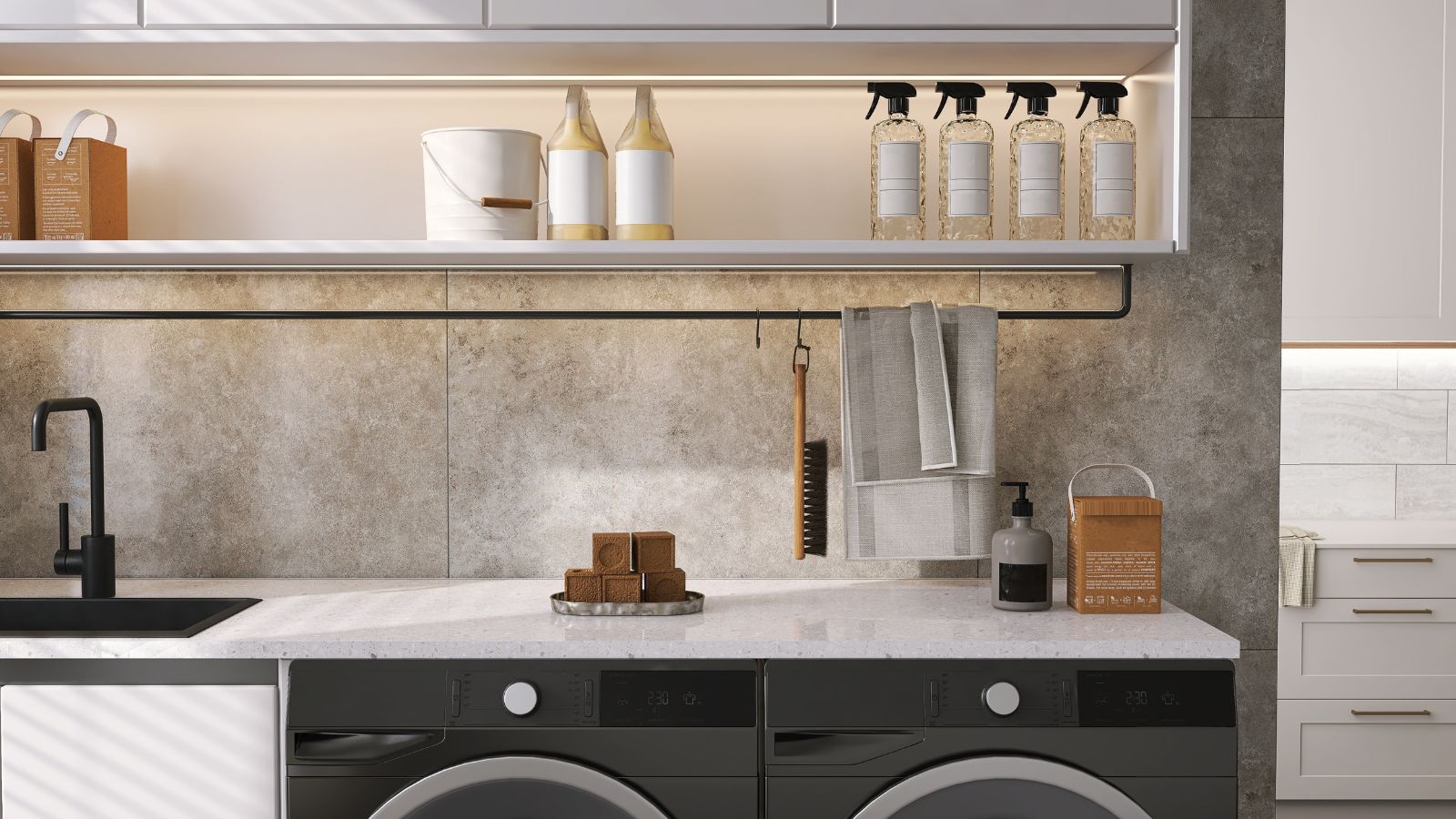 Extend the lifespan of your appliance with 5 simple but crucial washing machine maintenance tips
Extend the lifespan of your appliance with 5 simple but crucial washing machine maintenance tipsFrom cleaning the filters to keeping the door open, experts reveal the washer tips they swear by
By Andy van Terheyden
-
 5 vital ways a home battery backup can help with your most urgent needs in a power outage – from heating to flood prevention and calls
5 vital ways a home battery backup can help with your most urgent needs in a power outage – from heating to flood prevention and callsExperts say they're a worthy investment
By Clement Feng
-
 I’m an HVAC technician, and this is when I turn on my AC each year – plus 5 checks I always do beforehand
I’m an HVAC technician, and this is when I turn on my AC each year – plus 5 checks I always do beforehandSave yourself an AC hassle by running my checks and turning it on before big heat hits
By Josh Mitchell
-
 6 things you should never throw in the trash – and what to do for safe disposal instead
6 things you should never throw in the trash – and what to do for safe disposal insteadFrom batteries to space heaters, experts reveal what not to throw
By Andy van Terheyden